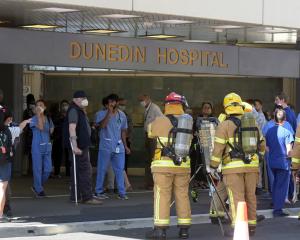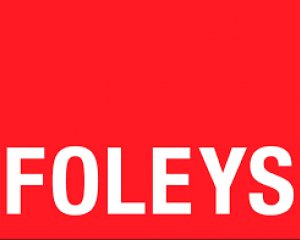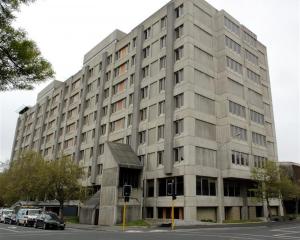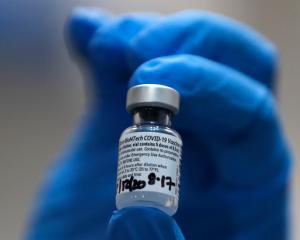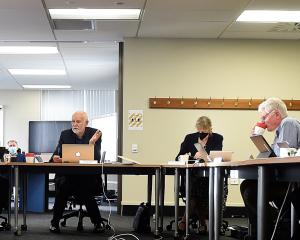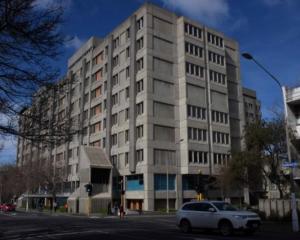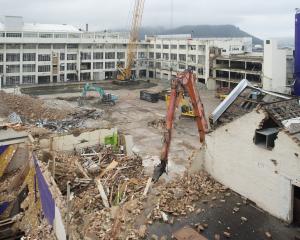
The June 2004 report "Theatre Services Project", by Gerard Lenssen, called for a second acute theatre for five days of the week, something which is yet to be achieved.
Earlier this year, following increasing clinical concerns about poor access to acute surgery, the Southern District Health Board agreed to fund an extra 35 hoursof acute surgery weekly, but this is not likely to happen until November.
Board emergency medicine and surgery group manger Dr Colleen Coop said the key issue was recruitment of staff, so if some key positions took longer to fill, the November introduction might need to be revised.
The 20-page 2004 report, provided anonymously to the Otago Daily Times, echoes recent concerns about acute theatre access.
Chief executive Brian Rousseau, who has left the board's employ, was unable to find correspondence on the report in his archive. He "suspected"all reports went to chief operating officer Vivian Blake (who is on leave) and he could not recall any discussions regarding the specific acute theatre recommendation.
"However, there have been many discussions regarding acute theatre capacity over the years, so this would most likely be one of them," he said.
For as long as he could remember, the opening of the ninth main theatre had been postponed because of the associated costs, which would involve more than $2 million capital expenditure plus operating costs, so not "a trivial matter".
(The proposal to increase hours by 35 a week is expected to cost $419,000, but it has not been spelled out where this money is coming from, as it is not within this year's budget.)
Regarding the second theatre proposal in Mr Lenssen's report, Mr Rousseau said he had "no doubt that if it was cost-neutral to implement it would have occurred".
Mr Lenssen described the management of acute patients in 2004 as "quite frankly, a bit of a shamble [sic], due to lack of resourced capacity".
He said the lack of an extra theatre severely compromised the prioritising of acute patients, clinical quality and delivery, risk management and productivity. The report said there was "high frustration" among clinicians because of the lack of availability of resourced theatre capacity, especially for the less severe urgent cases.
The average acute patient waited two to two and a-half days for surgery.
In June last year, hospital management reported lack of theatre time meant some acute surgery patients could wait up to five days.
Earlier this year, the board was told less than half of acute patients were operated on within the ideal time.
Mr Rousseau said it was "highly likely" that one of the considerations taken into account at the time of Mr Lenssen's report was to improve theatre efficiency and use, which would have improved the situation and delayed the investment requirement.
Many of Mr Lenssen's recommendations were implemented, including earlier starting times for theatre staff, and Dr Coop said the theatre use time had improved from the stated 70% in the report. Dr Coop was not in her role in 2004 and not able to find a response to the report or anyone who did it.
Theatre use rates were 89% for the day surgery unit and 87% for the main operating theatres in July this year.
Dr Coop said a recommendation that more elective surgery and some acute surgery could be done as day surgery was still constrained by the size of the day surgery suites.
Mr Lenssen, who was formerly general manager of Middlemore Hospital and knew both Mr Rousseau and Mrs Blake from that time, said he was a "little bit surprised" seven years later that his recommendation about the acute theatre had not been implemented.
The fact that the National Health Board had carried out a review of the hospital systems highlighted the urgency for some matters to be dealt with by the hospital and the board.
He recalled being called in to do a "helicopter" overview of the theatre services.
It had been a bit of "a blind date" as he had not followed the outcome of his report.
Mr Lenssen, who was brought in by the Waitemata District Health Board in 2009 as service development and strategic projects general manager, said that board had been "more or less in a similar vein" to the Dunedin situation in the past, but was now making "very positive" progress.
Engaging with clinicians was "critical" to change, so they "owned" the process.
Former Otago board chairman Richard Thomson said he could not recall Mr Lenssen's report, but there had been numerous formal and informal discussions regarding theatre capacity over the years.
Matters had come to a head over the past couple of years as "we have increased the amount of elective surgery".
That had put added pressure on the availability of acute time and also meant more cancelled electives when "any extra pressure comes on".
Chief medical officer Richard Bunton said he could not recall "off the top of my head" what had happened to Mr Lenssen's acute theatre recommendation. He assumed Mrs Blake would have the relevant paperwork.
• The National Health Board's highly critical assessment of Dunedin Hospital systems supported the hospital's plans to increase acute surgery, but said it would not solve all of the problems facing surgical activity.
One action it sought was improving the ventilation, widening doors and providing a specialist microscope in the larger of the two day surgery theatres, which would make it more suitable for eye surgery.
The board is yet to decide what action it is taking on the NHB report recommendations.

